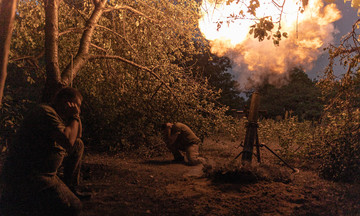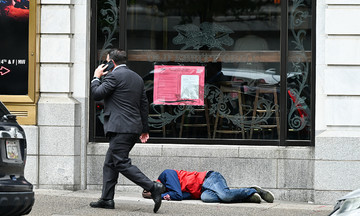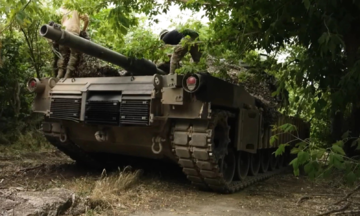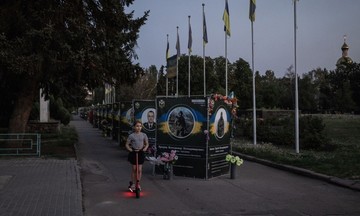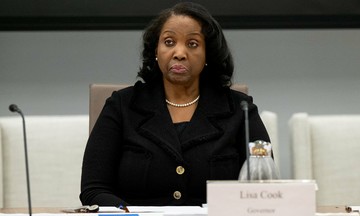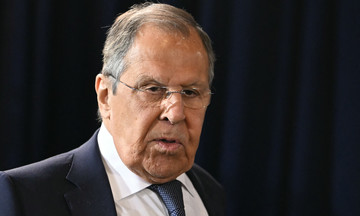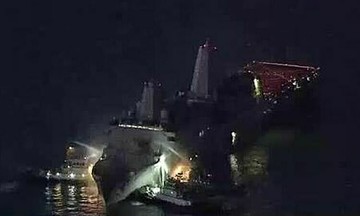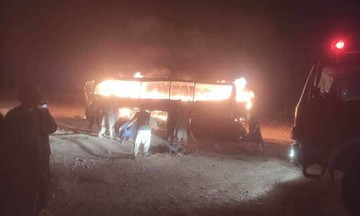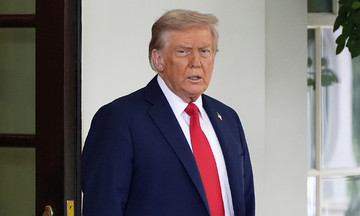US President Donald Trump and Russian President Vladimir Putin met in Alaska on 15/8 at 11:30 a.m. (2:30 a.m. Hanoi time on 16/8) to discuss the ongoing conflict in Ukraine. The summit was seen as a potential turning point, with hopes that it could lead to a breakthrough agreement and contribute to ending the three-year war.
The meeting presented a rare opportunity for Trump and Putin to find common ground, despite their differing approaches to resolving the conflict. Trump favored a trilateral meeting, including Ukrainian President Volodymyr Zelensky, to facilitate direct negotiations between Moscow and Kyiv. However, Putin believed the current conditions were not ripe for a meeting with Zelensky and intended to continue military operations until Russia's objectives were met.
This divergence in views made the outcome of the Trump-Putin meeting unpredictable. While Trump expressed optimism, he also acknowledged a 25% chance of failure.
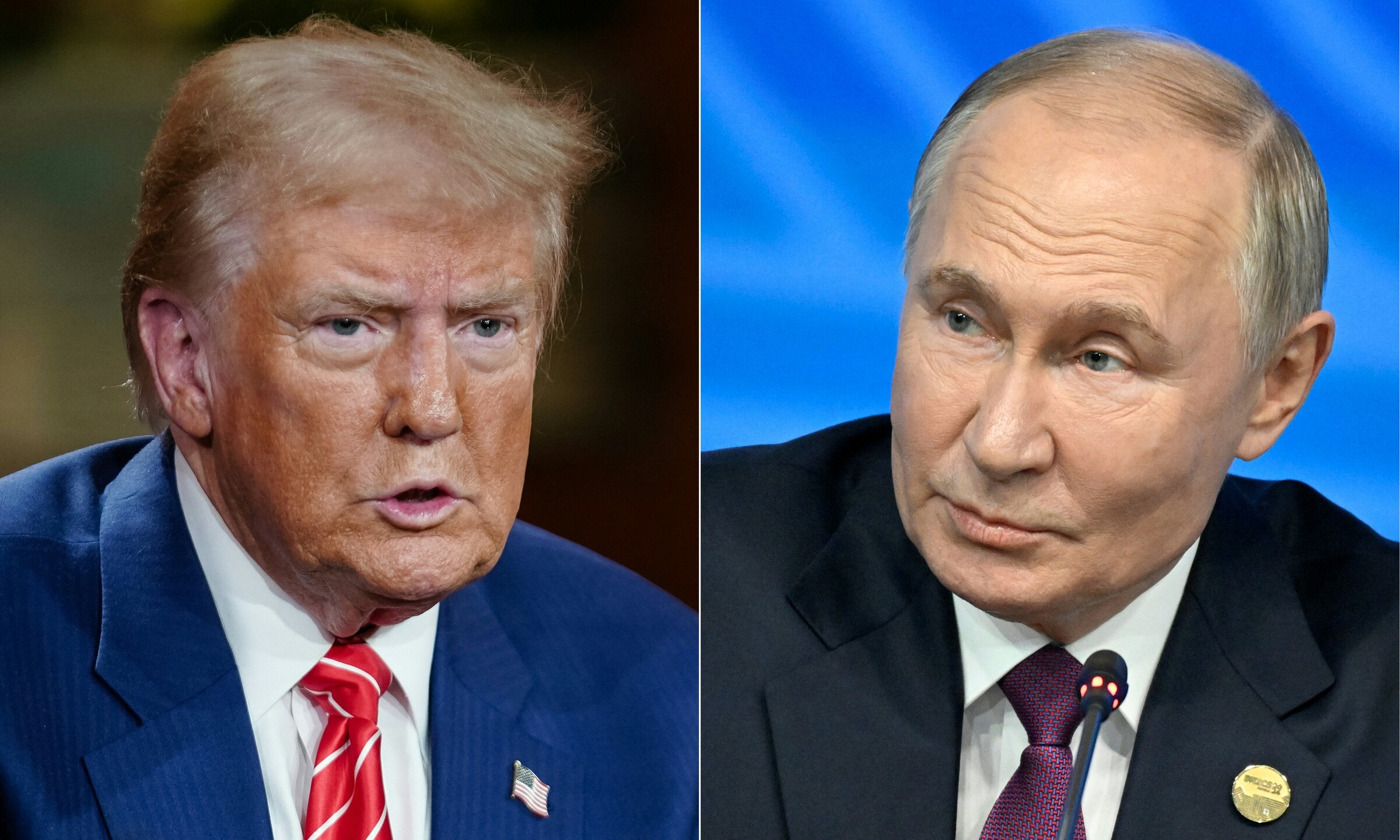 |
US President Donald Trump (left) and Russian President Vladimir Putin. Photo: AFP |
US President Donald Trump (left) and Russian President Vladimir Putin. Photo: AFP
Analysts suggested the best possible outcome would be a framework agreement to end the conflict, endorsed by both Ukraine and NATO. According to Charles A. Kupchan, professor of international affairs and senior fellow at the Council on Foreign Relations (CFR), such an agreement would provide a crucial foundation for Trump to engage with Zelensky and NATO leaders to unify their positions for future negotiations with Russia.
A potential agreement could include elements such as a ceasefire, a conflict freeze, and possibly minor territorial exchanges. While Ukraine and the West would not recognize the 20% of Ukrainian territory annexed by Russia, they would also not attempt to reclaim it by force. Russia would recognize the remaining 80% of Ukrainian-controlled territory as an independent and sovereign nation, with the right to maintain its own military and choose its allies. Critically, NATO would agree not to seek Kyiv's membership and would limit its military presence in Ukraine. Once implemented, the agreement would pave the way for the gradual lifting of Western sanctions against Russia.
Liana Fix, a European affairs expert, suggested that ideally, Trump would leverage his position to push for an unconditional ceasefire. This wouldn't require immediate concessions from Ukraine but would serve as a starting point for negotiations and establish a roadmap for direct, high-level talks between Russia and Ukraine, potentially including a meeting between the two leaders. Following the Alaska summit, Europe could play a larger role in supporting US efforts to end the conflict, Fix added.
However, CNN analyst Nick Paton Walsh considered this scenario unlikely. The US, Europe, and Ukraine had proposed a similar comprehensive ceasefire in May, which Russia rejected despite the threat of EU sanctions. Trump subsequently shifted his strategy, backing lower-level Russia-Ukraine talks in Turkey, but these efforts also failed to yield a breakthrough.
Fix warned that the worst-case scenario for Ukraine would be an agreement entirely favorable to Russia, which would likely face strong opposition from Ukraine and its NATO allies, leading to a deadlock in future negotiations. In June, Russia presented Ukraine with a memorandum outlining terms for a complete ceasefire, including recognition of Crimea and the 4 provinces of Lugansk, Donetsk, Zaporizhzhia, and Kherson as Russian territory, as well as Ukraine's neutrality and refusal to join military alliances.
"Trump would then effectively ask Ukraine 'take it or leave it.' Ukraine would refuse, and Washington could halt all aid to Kyiv. This scenario would create an irreparable rift in transatlantic relations," Kupchan warned.
The most likely outcome, according to analysts, is a middle ground. Trump and Putin would agree to agree on a path to end the conflict without reaching a concrete agreement. Given the limited preparation time – just over a week – a temporary truce appears the most feasible outcome. This would allow Trump to claim a "win," demonstrating his ability to navigate such a significant event.
Meanwhile, Putin would avoid making firm commitments to end the conflict. With Russia maintaining momentum on the battlefield and repeatedly breaching Ukrainian defenses, while Ukraine faces challenges in manpower and resources, Putin has little incentive to cease hostilities. Instead, he might seek to prolong the conflict through diplomacy with Trump.
"The meeting wouldn't produce progress, but it wouldn't set back peace efforts either. Both sides would declare the talks sincere and productive. They might mention a temporary ceasefire in urban centers as a 'goodwill' gesture towards peace," according to Paul B. Stares, a senior fellow at CFR.
Putin would likely accept this outcome, given the precedent of a 30-day ceasefire on energy infrastructure between Russia and Ukraine. Meanwhile, Trump could claim a certain victory over his Russian counterpart.
Professor Kupchan suggested that this scenario would mean Trump made a mistake by holding the summit prematurely. The event itself is already considered a win for Russia, helping Moscow break years of diplomatic isolation imposed by the West.
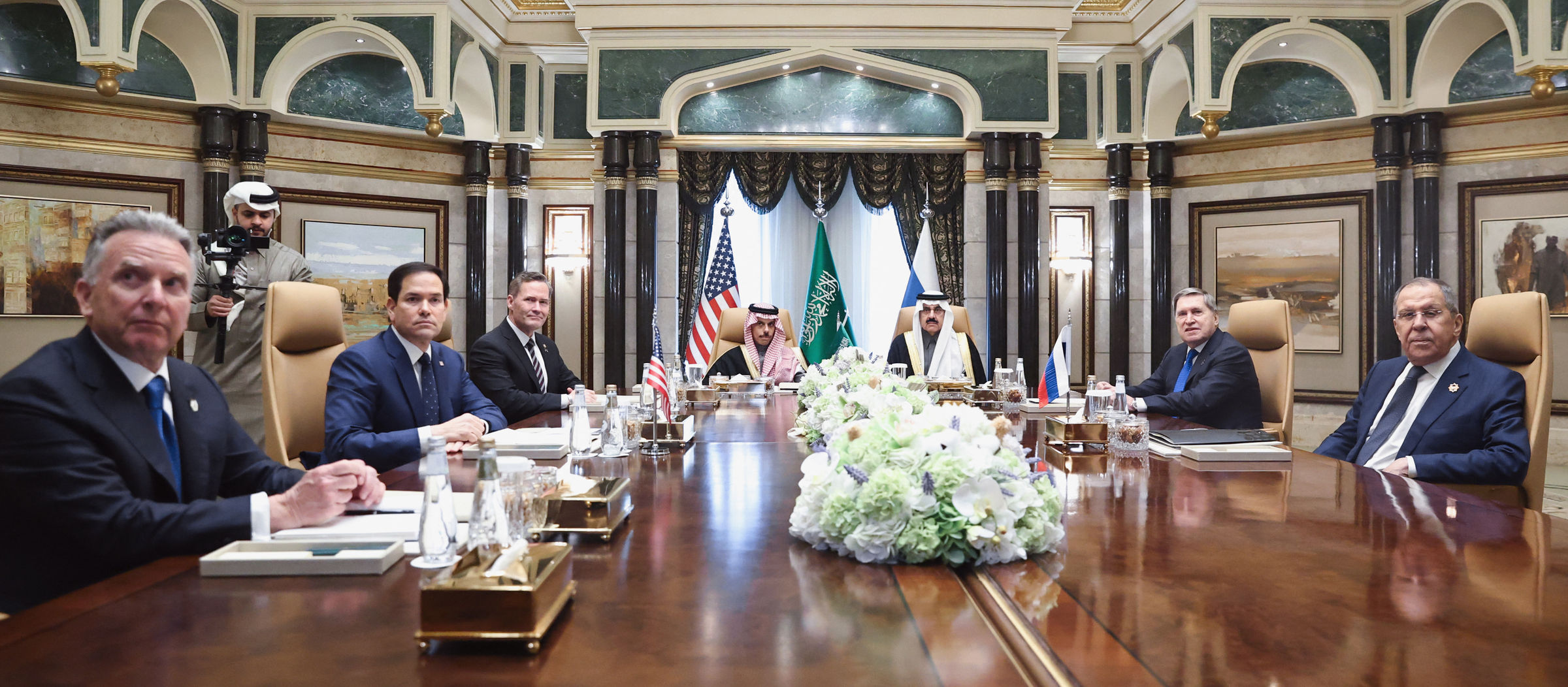 |
The US (left) and Russian delegations at the negotiating table in Riyadh, Saudi Arabia on 18/2. Photo: AFP |
The US (left) and Russian delegations at the negotiating table in Riyadh, Saudi Arabia on 18/2. Photo: AFP
Both Russia and the US have attempted to manage expectations for the summit. On 14/8, the Kremlin cautioned against predicting the outcome, stating there were no plans to sign any documents. Two days earlier, White House Press Secretary Karoline Leavitt described the meeting as a "listening exercise" for Trump to gain a better understanding of how to end the war.
According to Olga Tokariuk, a researcher at the Center for European Policy Analysis, while the Trump-Putin meeting carries high expectations, a breakthrough is unlikely. It resembles "two superpowers deciding the fate of Ukraine without Kyiv's representation," she noted.
Nhu Tam (According to CNN, Reuters, CFR)



